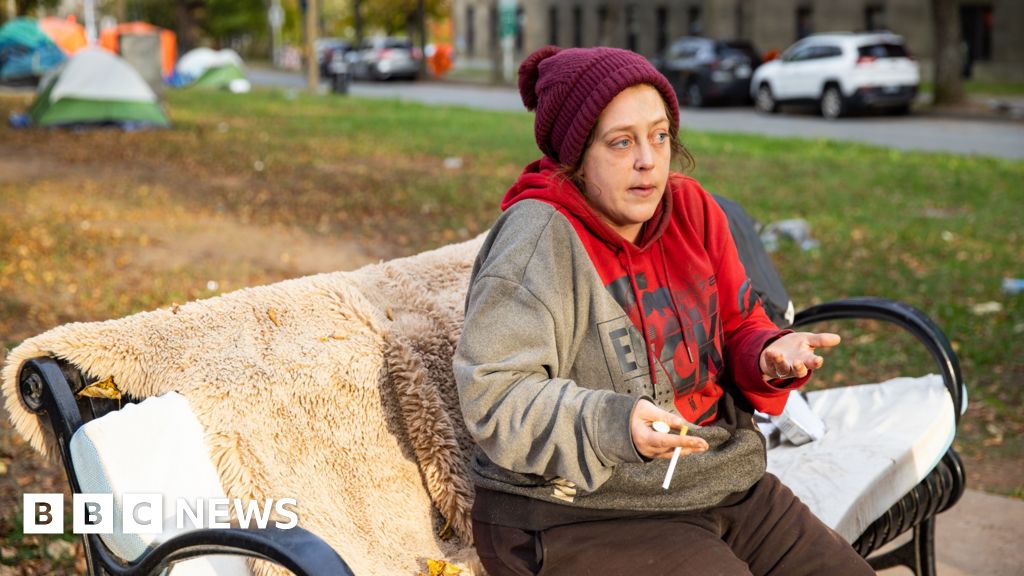Residents of BBCEncampment, such as Andrew Goodsell, are feeling the effects of Halifax’s rising rent prices, which have made housing unaffordable for many. As cities in North America are dealing with homelessness, Halifax has taken a unique approach by regulating tent encampments instead of banning them in an effort to address what officials are calling the “issue of the decade”. Goodsell, who has been living in a small orange tent in downtown Halifax for almost a year, describes life at the encampment as “depressing”. He explains that he used to rely on couch surfing or minimum-wage jobs to afford rent, but with the increasing housing costs in Halifax, he can no longer afford a place to live. The city has designated nine sites where people without housing can lawfully camp outside, providing a temporary solution while indoor shelters are at capacity. This approach, which has been adopted by other municipalities in Canada, stands in contrast to the harsher measures taken in some North American cities, where homeless encampments are forcibly removed. Halifax’s policy has sparked debate among encampment residents, with some calling for resources to be invested in affordable housing instead. The city is facing a growing housing crisis, with a significant increase in homelessness since the pandemic. Despite the challenges, advocates of the designated encampment sites believe they prevent the criminalization of homeless individuals and allow the city to focus its outreach efforts. However, the policy remains provisional and divisive, with some city officials and residents expressing concerns about safety and the impact on local communities. The issue of homelessness and affordable housing continues to be a pressing issue in Halifax and other cities across Canada, with the need for long-term solutions becoming increasingly urgent.

